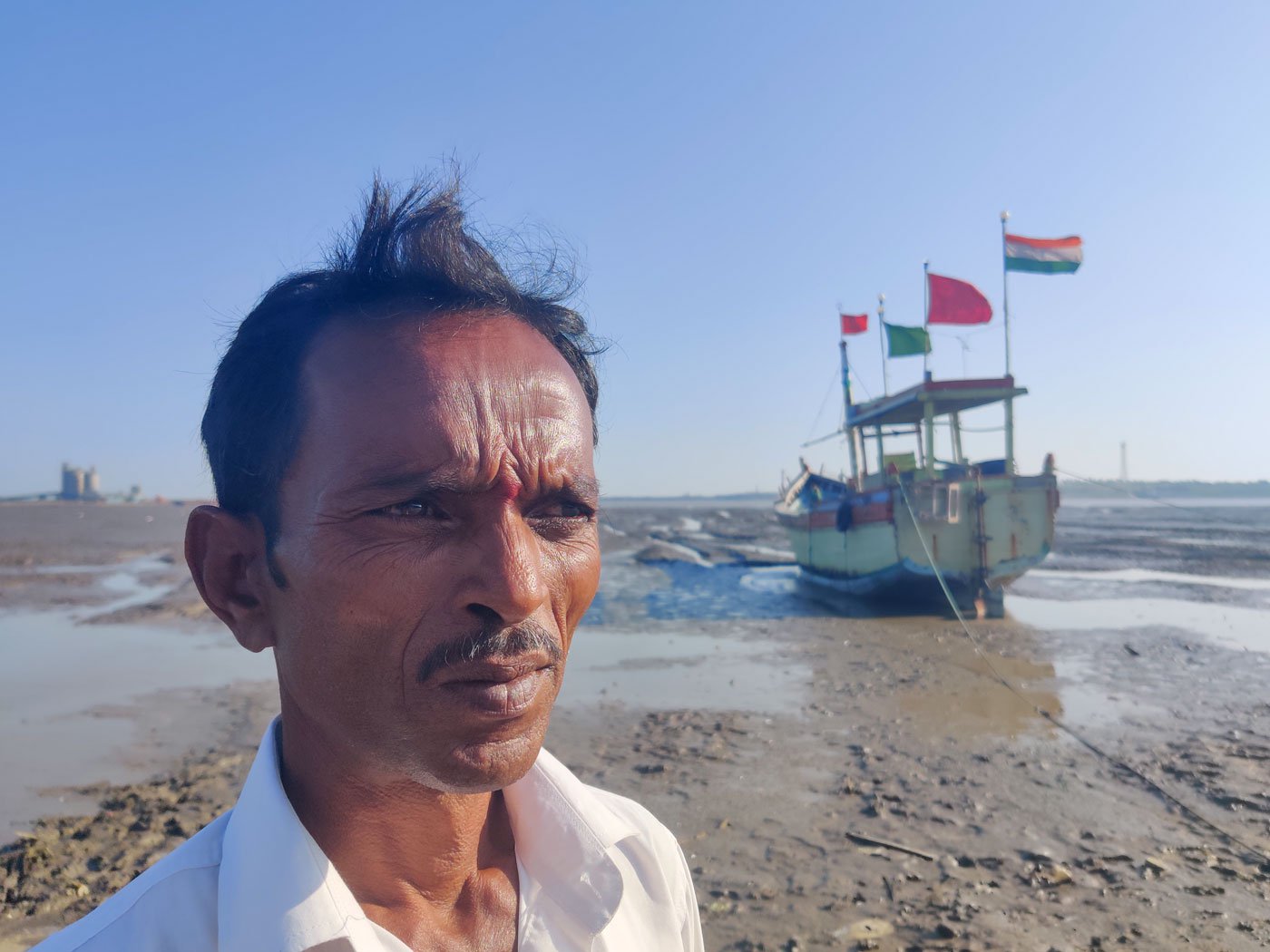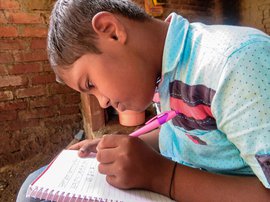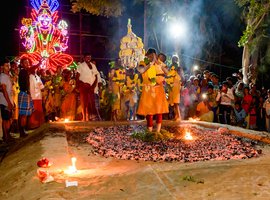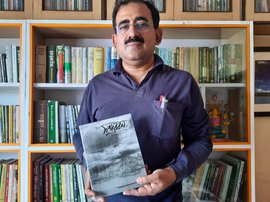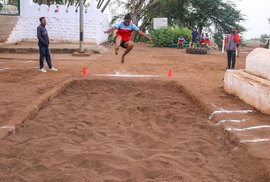Jeevanbhai Bariya suffered two heart attacks in a span of four years. He was at home when the first one struck in 2018. His wife, Gabhiben rushed him to a hospital. In April 2022, he was steering a fishing trawler in the Arabian Sea when he suddenly experienced severe chest pains. One of his co-workers took over the wheel and the other nervously helped him lie down. They were about five hours from the shore. Jeevanbhai held out for over two before passing away.
Gabhiben’s worst fear had come true.
When Jeevanbhai decided to resume fishing a year after the first heart attack, she wasn’t too thrilled about it. She knew it was risky. So did Jeevanbhai. “I told him not to,” Gabhiben says, sitting in her dimly-lit hut in the small coastal town of Jafrabad in Gujarat’s Amreli district.
But like most people in the town, 60-year-old Jeevanbhai knew no other work except fishing, which earned him about Rs. 2 lakh every year. “He had been in the business for 40 years,” says Gabhiben, 55. “When he rested for a year after the heart attack, I worked as a labourer [drying fish of other fisherfolk] to keep our household barely afloat. When he thought he had recovered, he decided to go back to work.”
Jeevanbhai worked on a trawler owned by one of the bigger fishermen in Jafrabad. For eight months of the year – barring the monsoon season – workers take these trawlers into the Arabian Sea for stretches of 10-15 days each. They carry enough water and food to last a couple of weeks.
“It is never safe to be far out in the sea for days with no access to emergency services,” says Gabhiben. “All they have is a first-aid kit. For a heart patient, it is riskier.”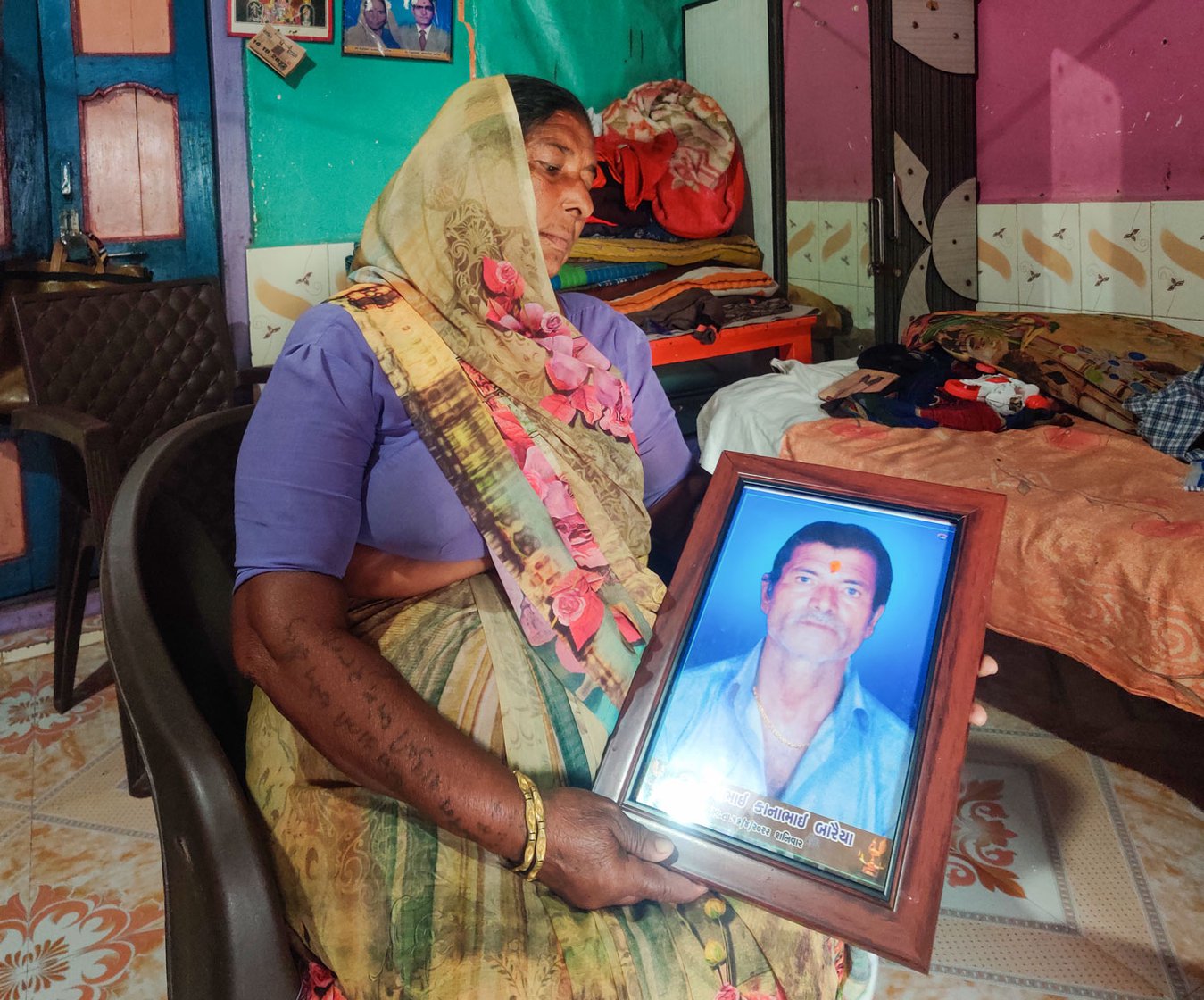
Gabhiben holding a portrait of her late husband, Jeevanbhai, at their home in Jafrabad, a coastal town in Gujarat’s Amreli district
Gujarat has the longest coastline among Indian states – over 1,600 kilometers spread across 39 talukas and 13 districts. It contributes to 20 per cent of the country's marine production. Over five lakh people in the state, across more than 1,000 villages, are engaged in the fisheries sector, according to the website of the Commissioner of Fisheries.
Most of these people are completely cut off from medical services during the four months or so that they spend at sea each year.
Every time Jeevanbhai set off to sea after his first heart attack, Gabhiben would experience stress and anxiety. Left alone with her thoughts, which oscillated between hope and fear, she would spend sleepless nights staring blankly at the ceiling fan. When Jeevanbhai returned home safe, she would heave a sigh of relief.
Until one day, he didn’t.*****
Jeevanbhai’s fate might have been different had the state of Gujarat acted upon its five-year-old promise to the High Court.
In April 2017, Jandurbhai Baladhiya, 70, a resident of Shiyal Bet, an island off the coast of Jafrabad, filed a public interest litigation in the High Court of Gujarat, asserting a longstanding demand for boat ambulances. Guiding him with the petition was Arvindbhai Khuman, 43, a lawyer-activist associated with Centre for Social Justice, an Ahmedabad-based organisation working for the rights of vulnerable communities.
The petition claimed that the state was “in violation of the fundamental and Constitutional rights” of the fisherfolk, ignoring Article 21 of the Constitution of India, which guarantees right to life.
It further cited the Work in Fishing Convention, 2007, which lays down “minimum requirements with regards to occupational safety, health protection and medical care.”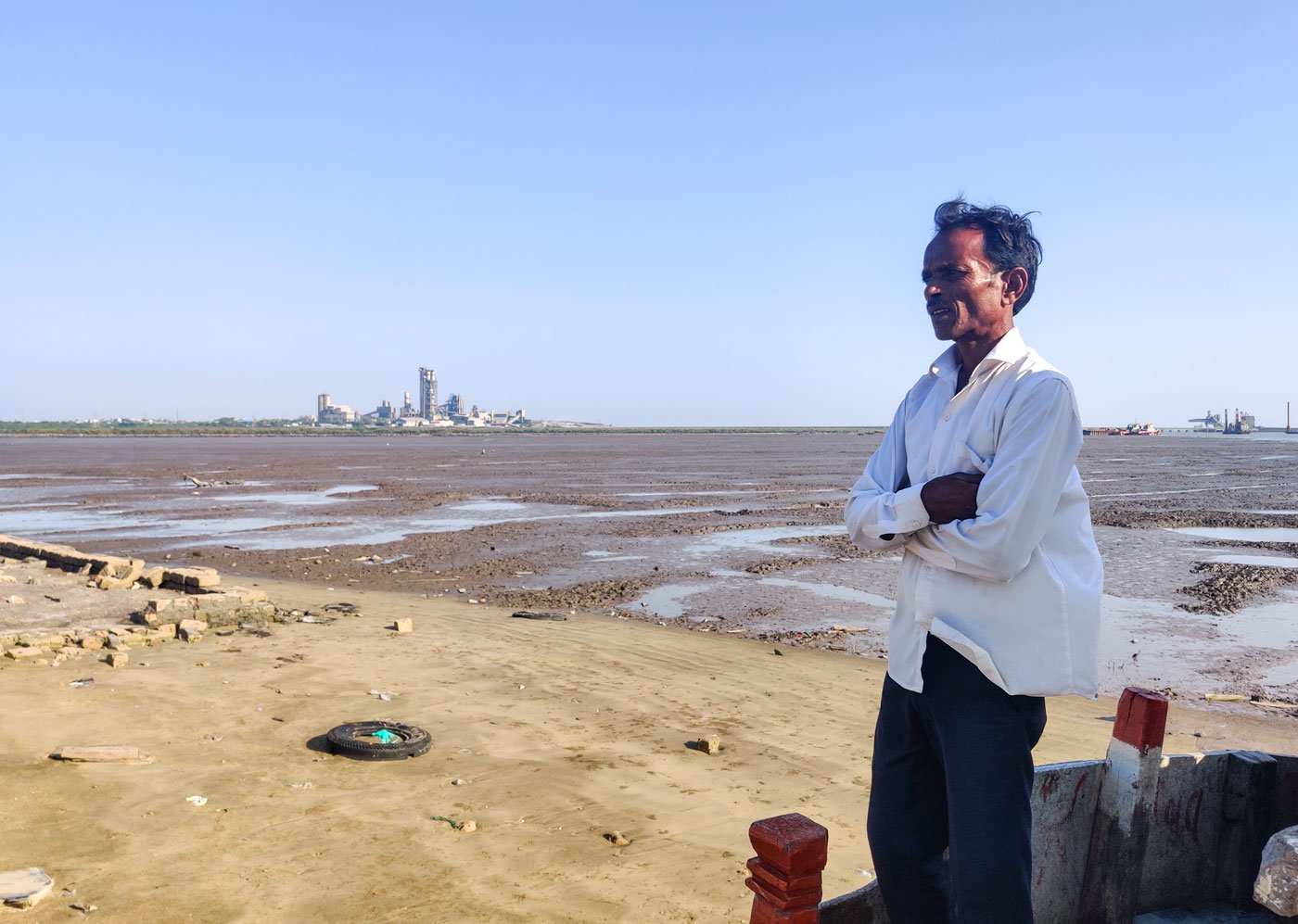
Standing on the shore of Jafrabad's coastline
, 55-year-old Jeevanbhai Shiyal says fisherfolk say a silent prayer before a trip
In August 2017, the High Court disposed of the petition after receiving certain assurances from the state. Manisha Lavkumar, appearing on behalf of the state, told the Court that the state was “very much conscious about the rights of the fishermen” and people “residing in coastal areas.”
Importantly, the Court order noted that the state had decided to purchase seven boat ambulances “fully equipped to handle any kind of emergency situation” to operate across 1,600 kms of the coast.
Five years on, the fisherfolk continue to face health emergencies. But only two of the seven promised boat ambulances, one each in Okha and Porbandar, have materialised so far.
“Most of the coastline is still vulnerable,” says Arvindbhai, based in the small town of Rajula, 20 kms north of Jafrabad. “The water ambulances are speed boats that can cover the same distance in half the time that the fishing trawlers take. We desperately need these ambulances as fisherfolk don’t navigate close to the shore these days.”
Jeevanbhai was over 40 nautical miles, or roughly 75 kilometers, away from shore when he suffered that fatal heart attack. Around 20 years ago, fishermen rarely ventured that far into the sea.
“When he first started fishing, he would get enough fish within five or eight nautical miles,” says Gabhiben. “It would hardly be an hour or two from the coast. Over the years, it has steadily become worse. These days, we have to be as far as 10 or 12 hours from the coast.”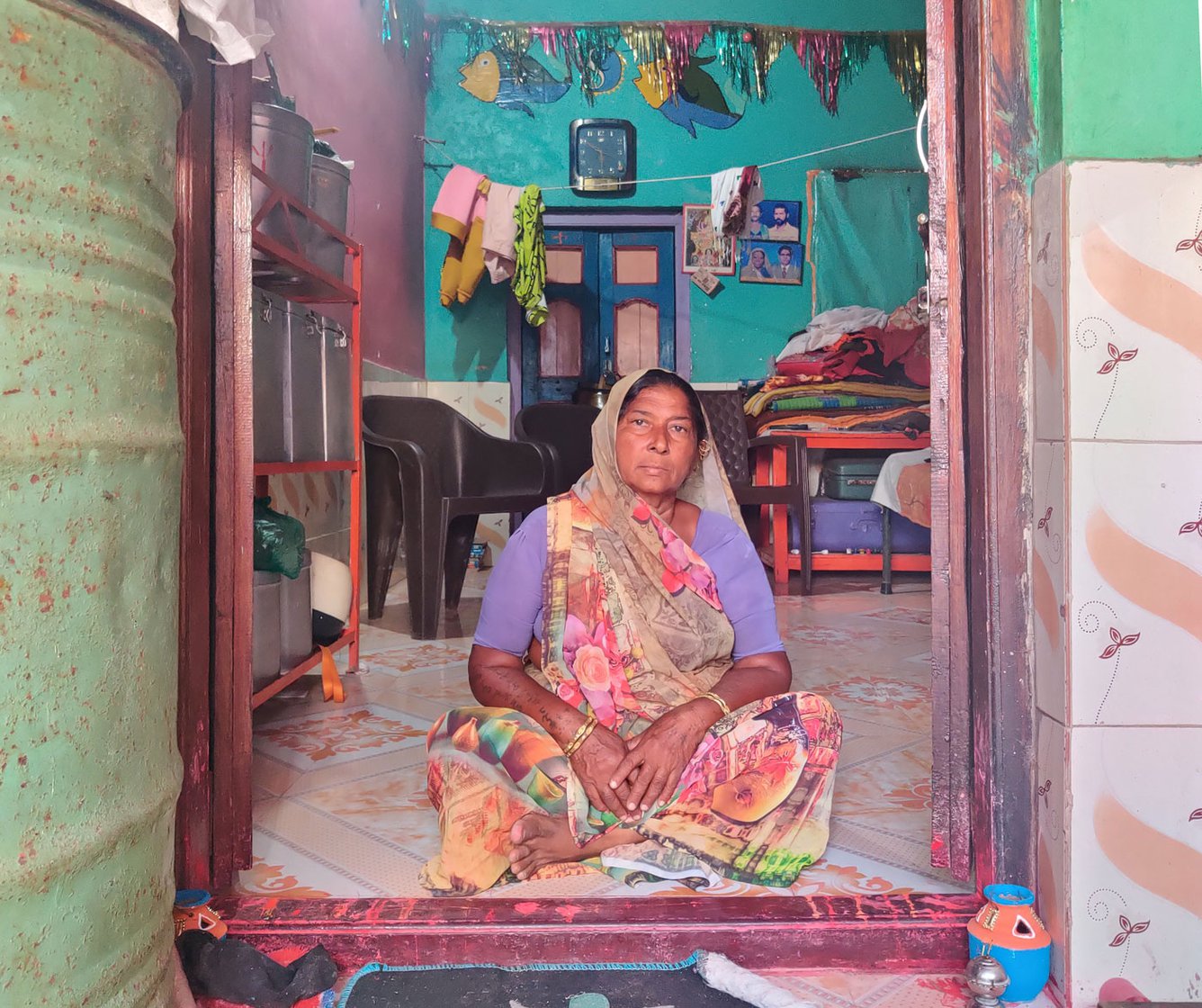
Gabhiben recalls the stress and anxiety she felt every time Jeevanbhai set off to sea after his first heart attack . Most fisherfolk in Gujarat are completely cut off from medical services during time they are at sea
*****
There are two factors driving fisherfolk far out into the sea: rise in coastal pollution and decline in mangrove cover.
Rampant industrial pollution across the coastline has a terrible impact on the marine ecosystem, says Usman Gani, secretary of National Fishworkers Forum. “It ensures that the fish steer clear of the coast, forcing fisherfolk to go deeper,” he says. “The further they go, the more critical the emergency services become.”
According to the State of Environment Report (SOE), 2013 , Gujarat’s coastal districts are home to 58 major industries, which include chemicals, petrochemicals, steel and metals, among others. There are 822 and 3156 mining and quarry leases, respectively. Since the report came out in 2013, activists believe these numbers would have risen substantially.
The report further points out that over 70 per cent of power generation projects in the state are concentrated in its 13 coastal districts, while the rest of the 20 districts host the remaining 30 per cent.
“The industries often flout environmental norms. Everybody dumps their effluents in the sea either directly or through rivers,” says Rohit Prajapati, a Baroda-based environmental activist. “Gujarat has as many as 20 polluted rivers. Many of them merge into the Arabian Sea.”
In the name of development along the coast, Gani says, the state has disturbed the mangrove cover as well. “Mangroves protect the coast and provide fish with a safe space to lay their eggs,” he adds. “But wherever commercial industries have come up along the Gujarat coast, mangroves have been cut. The fish won’t come to the coast in the absence of mangroves.”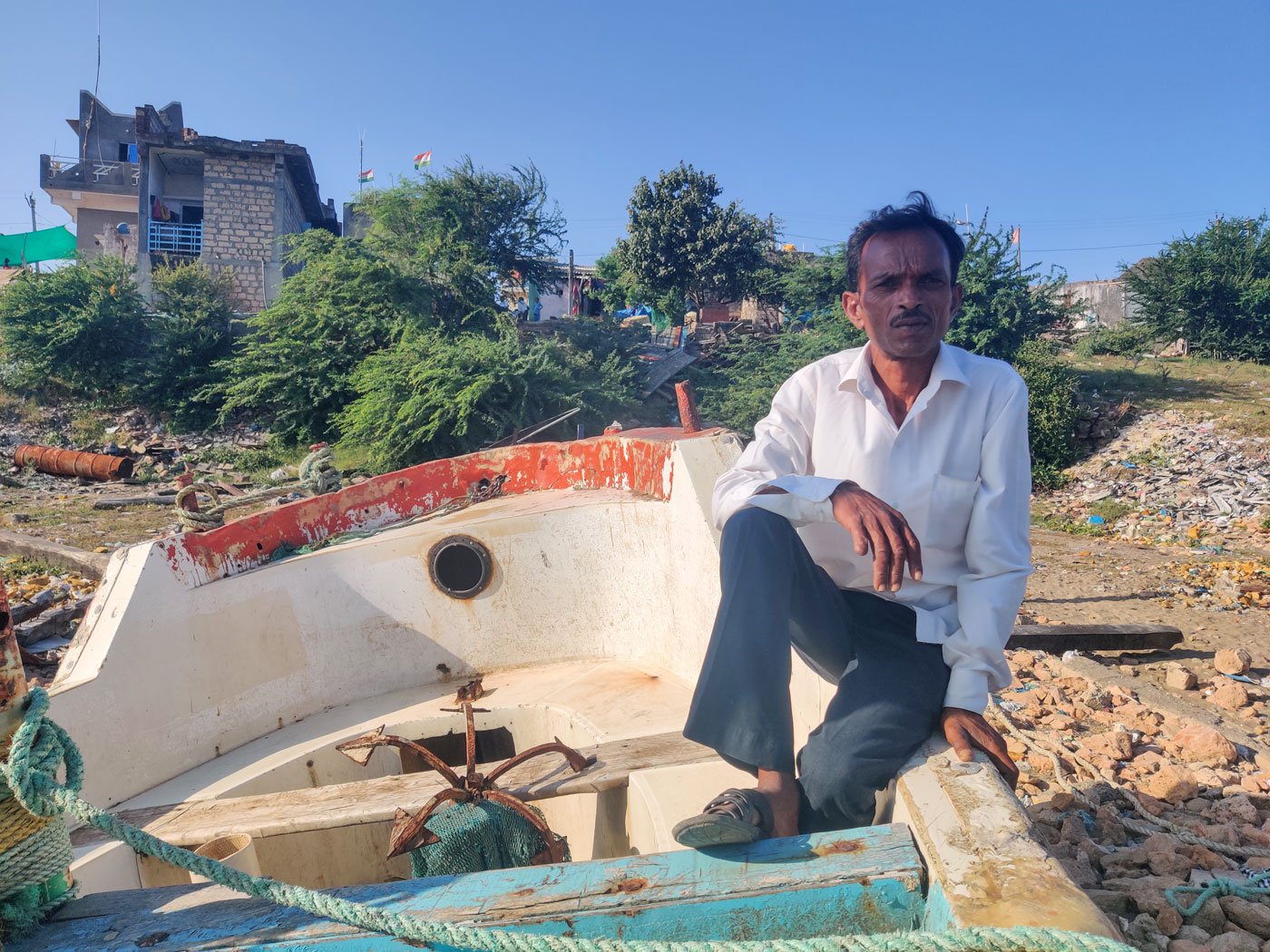
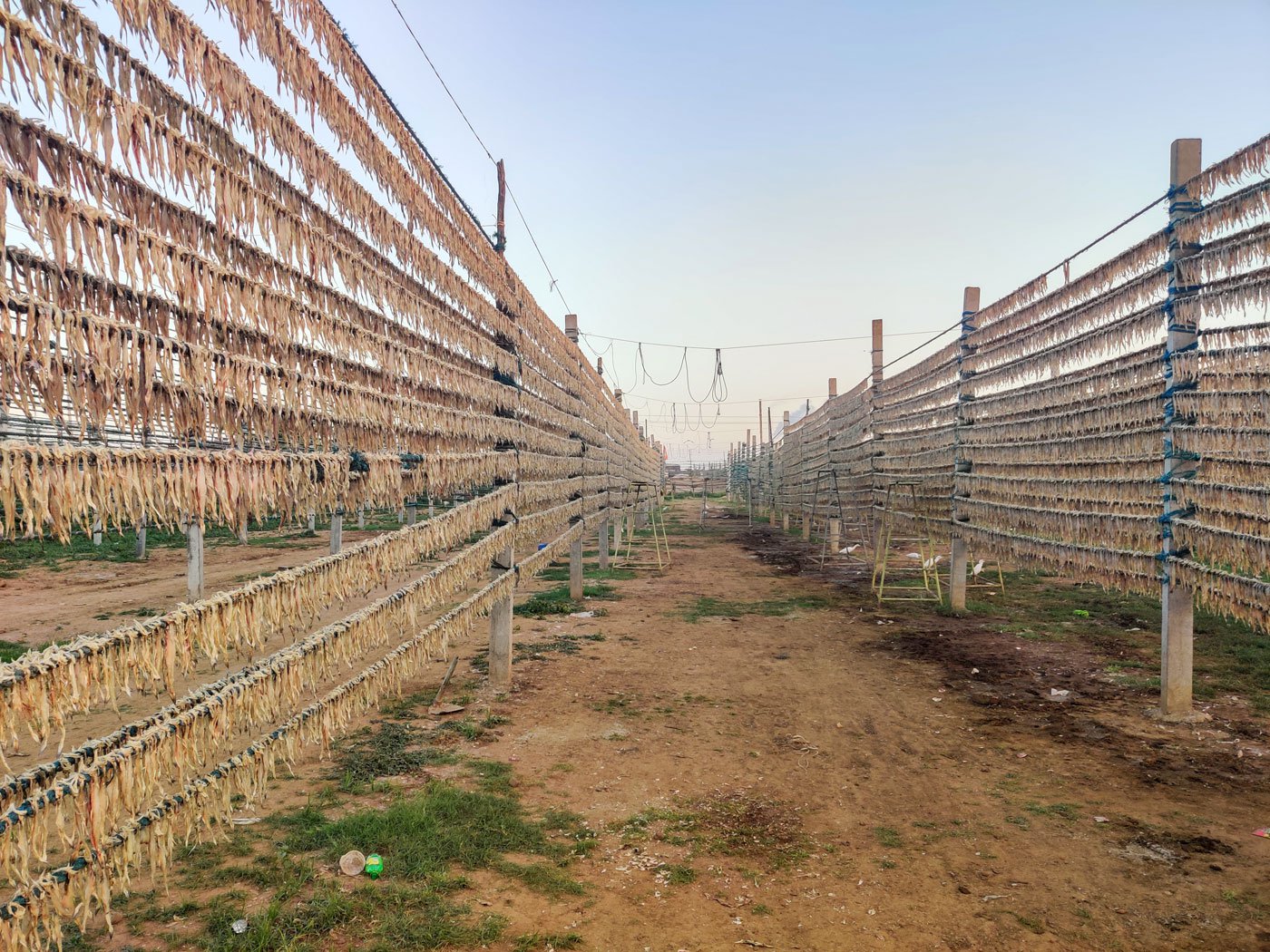
Jeevanbhai Shiyal on a boat parked on Jafrabad's shore where rows of fish are set to dry by the town's fishing community (right)
According to the 2021 India State of Forest Report , Gujarat’s mangrove cover has shrunk by 2 per cent since 2019 even as nationally it has increased by 17 per cent during the same period.
The report further states that 38 of 39 coastal talukas in Gujarat are susceptible to varying degrees of shoreline erosion. This would normally have been prevented by mangroves.
“Failure to protect the mangroves is one of the reasons for the rise in sea level along the Gujarat coast. The sea now brings back the industrial pollution we dump into it,” says Prajapati. “The pollution and [consequent] absence of mangroves ensures that the water around the coast remains polluted.”
Compelled to sail further away from the coast, fisherfolk now have to face stronger water currents, intense winds and unpredictable weather. Poorer fisherfolk suffer the most as they navigate smaller fishing boats that are not sturdy enough to deal with rough conditions.
In April 2016, Sanabhai Shiyal’s boat broke down in the middle of the sea. A strong current forced open a minor crack and the water started gushing into the boat despite the best efforts of the eight fishermen on board. It was futile to call for help, for there was nobody around. They were on their own.
The boat disintegrated and drowned just as the fishermen frantically jumped into the sea to save their lives. Each clutched at whatever piece of wood they could find to remain afloat. Six survived. Two perished, including 60-year-old Sanabhai.
The survivors kept bobbing around in the sea for nearly 12 hours before a fishing trawler spotted and rescued them.
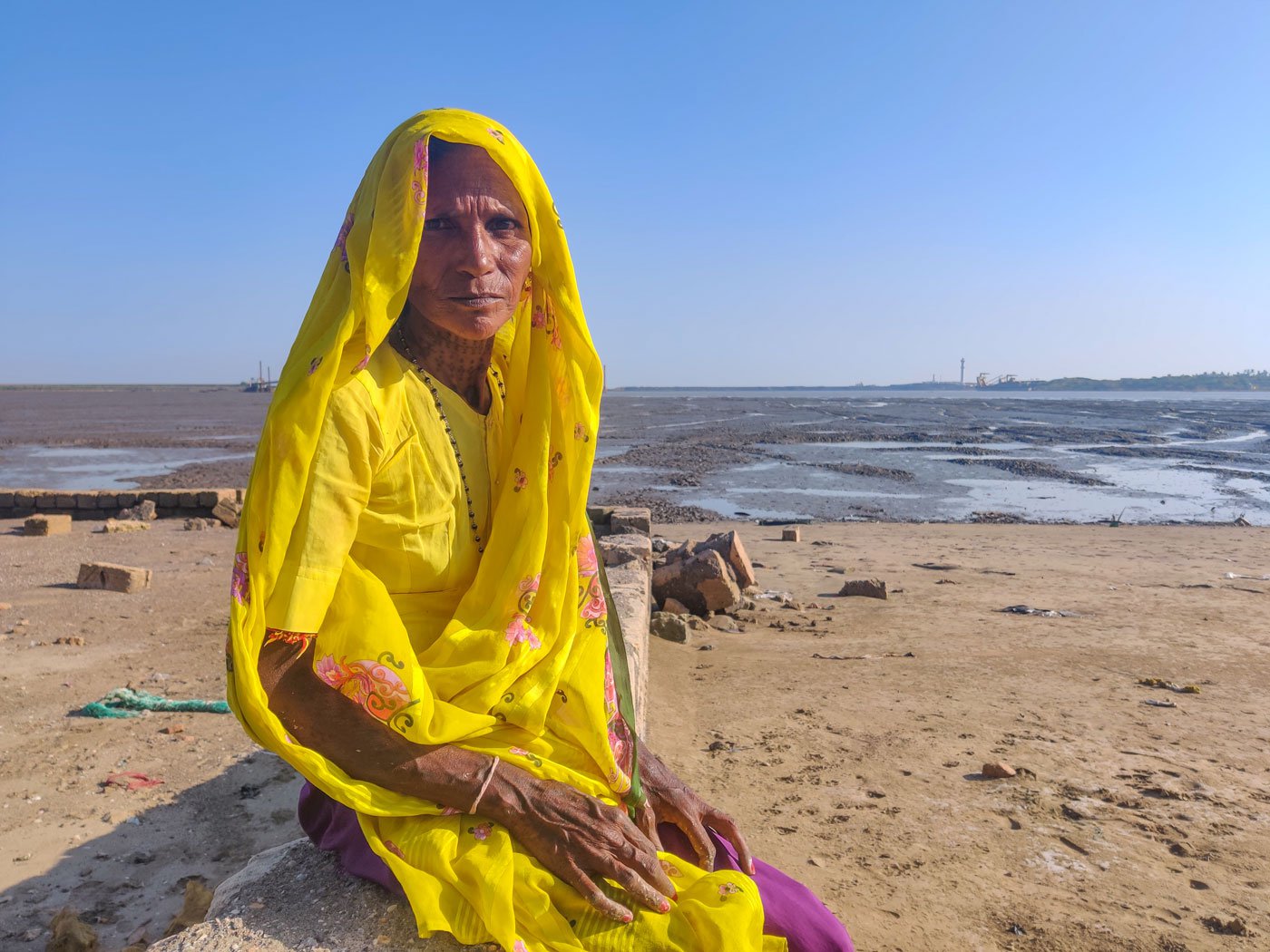
Jamnaben's husband
Sanabhai was on a small fishing boat which broke down in the middle of the Arabian Sea. He passed away before help could reach him
“His body was found three days later,” says Sanabhai’s wife, Jamnaben, 65, a resident of Jafrabad. “I don’t know if a speed boat could have saved him. But he would have at least had a better chance of surviving. He could have called for emergency help upon realising there was something wrong with the boat. The worst part is that we are left wondering what might have happened.”
Her two sons, Dinesh, 30, and Bhupad, 35 – both are married and have two children each – are also fishermen. After Sanabhai’s death, though, some trepidation has set in.
“Dinesh still goes fishing regularly. Bhupad resists as much as he can,” says Jamnaben. “But we have a family to look after and there is only one source of income. Our lives are devoted to the sea.”
*****
Fifty-five-year-old Jeevanbhai Shiyal, who owns a fishing trawler, says fisherfolk say a silent prayer before embarking on a trip.
“About a year ago, one of my workers suddenly felt chest pains onboard,” he recalls. “We immediately began our journey towards the coast.” For five hours the worker was gasping for breath, his hands on his chest as the trawler lumbered back to the coast. Shiyal swears it felt like five days. Each second longer than the previous one. Each minute, more stressful than the one before. The worker survived because he was admitted to a hospital as soon as they reached the shore.
That one trip cost Shiyal over Rs. 50,000, for he had to return within a day. “One round trip requires 400 litres of fuel,” he says. “We came back without catching any fish at all.”
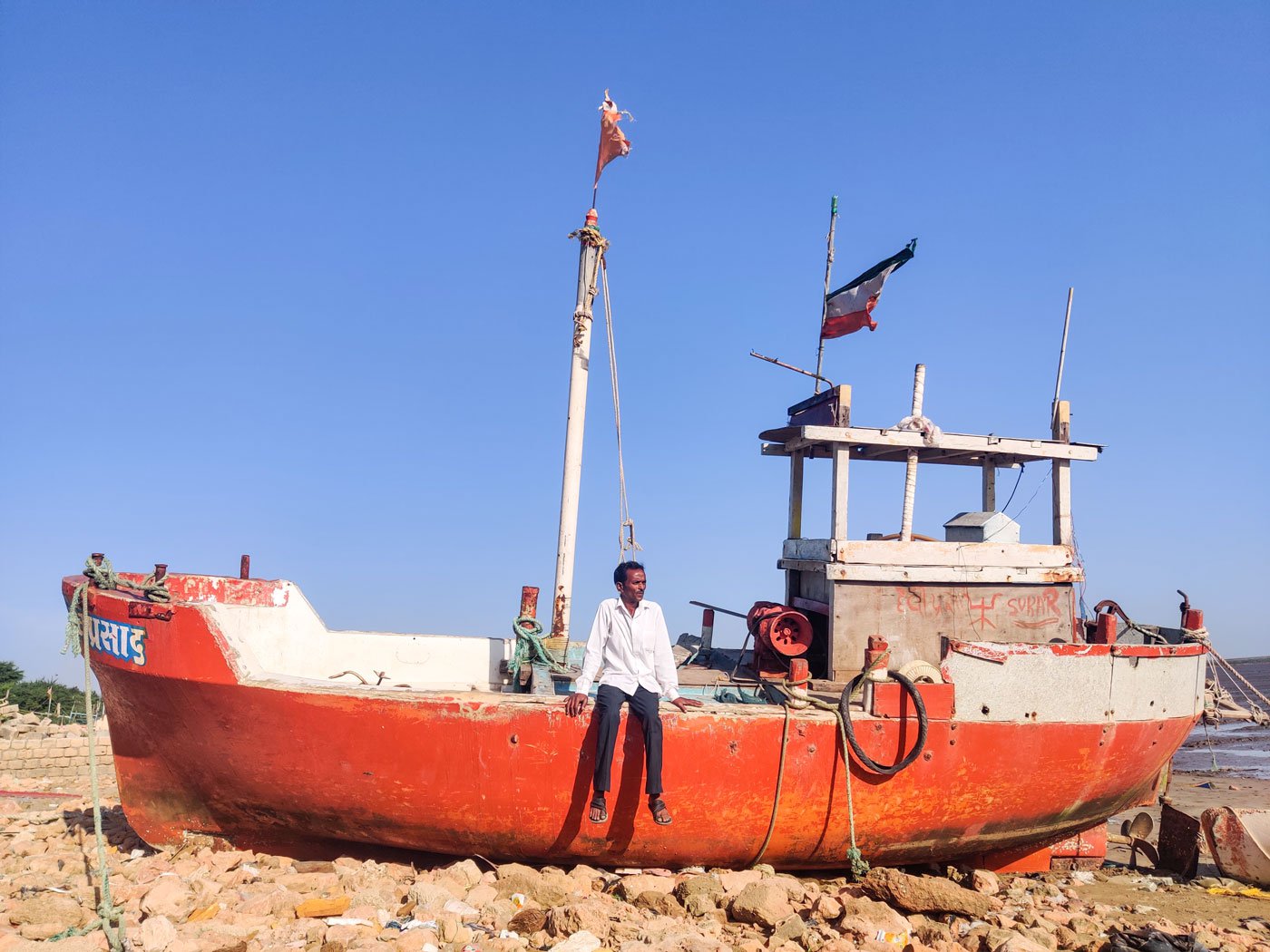
When one of Jeevanbhai Shiyal's workers suddenly felt chest pains onboard his trawler, they immediately turned back without catching any fish. The fuel expenses for that one trip cost Shiyal over Rs. 50,000
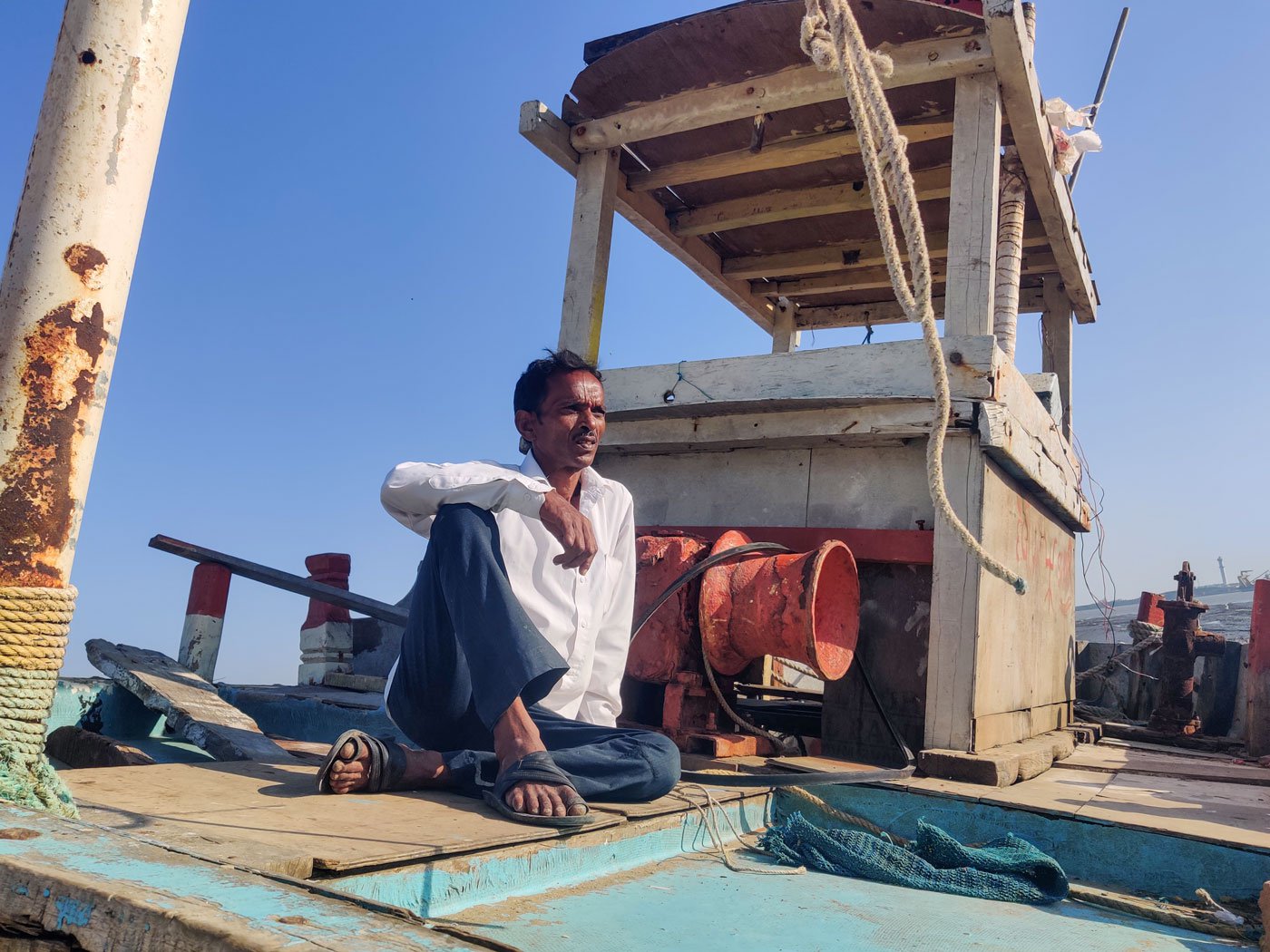
'We bear the discomfort when we fall sick on the boat and get treated only after we are back home,' says Jeevanbhai Shiyal
Because of the rising overhead costs involved in fishing, Shiyal says, the first instinct when faced with a health situation is to neglect it. “It can be dangerous. But we live modest lives without any savings. Our circumstances compel us to ignore our health. We bear the discomfort when we fall sick on the boat and get treated only after we are back home.”
For the residents of Shiyal Bet, there is no healthcare even at home. The only access to the island is through a 15-minute ferry ride; there is also a five-minute struggle to get on and off the wobbly boat.
In addition to boat ambulances, Baladhiya’s petition had also sought a functional Primary Health Centre (PHC) for the 5,000-odd residents of Shiyal Bet – all of whom rely on fisheries for a source of income.
The High Court Order in response to it had said that medical officers from in and around the district would to be deputed at the Sub-Health Centre for five days a week from 10 a.m. to 4 p.m.
However, residents say there is no enforcement on the ground.
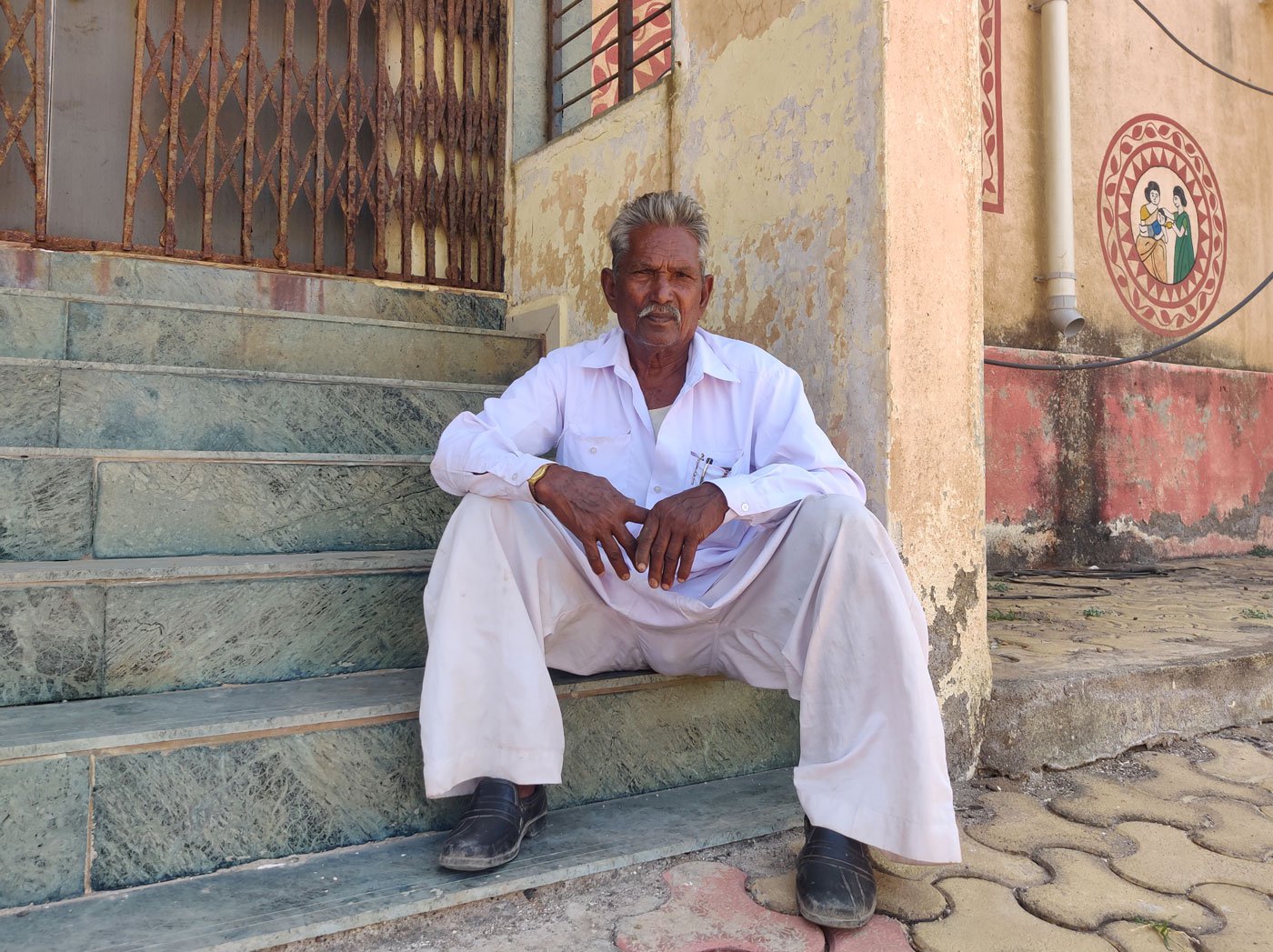
Kanabhai Baladhiya outside a
Primary Health Centre in Shiyal Bet
. He says, 'I have
to get on a boat every time I need to see a doctor'
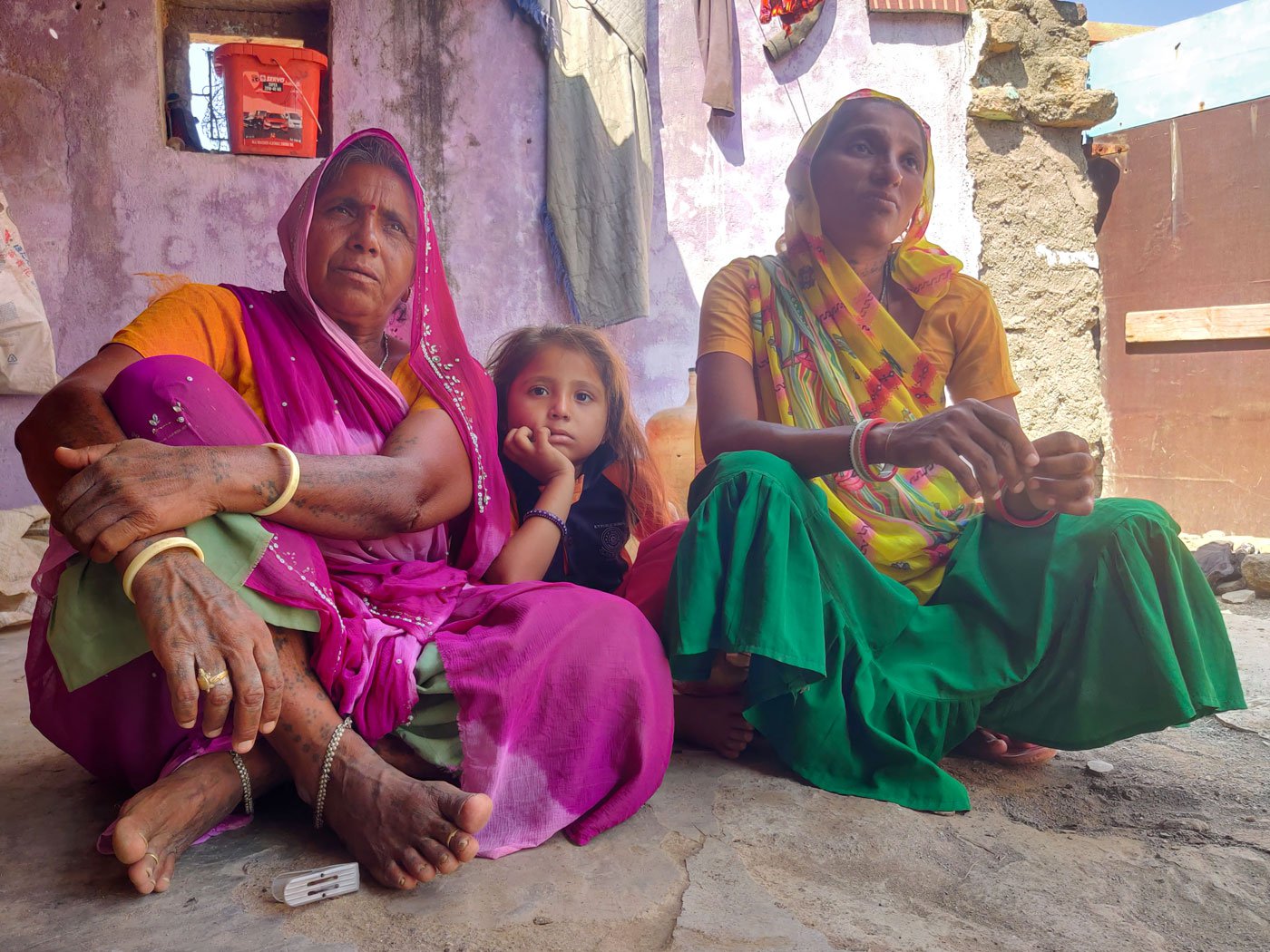
Hansaben Shiyal is expecting a child and fears she won’t get to the hospital on time
Kanabhai Baladhiya, a retired fisherman, says he has to go to Jafrabad or Rajula to treat his recurring knee problem. “The PHC here is often shut,” says the 75-year-old. “The court, for some reason, said there should be a doctor here for five days a week. As if people don’t fall sick on weekends. But even weekdays here are hardly any better. I have to get on a boat every time I need to see a doctor.”
For pregnant women, it is an even bigger problem.
Hansaben Shiyal, 28, is into her eighth month of pregnancy and has had to visit a hospital in Jafrabad thrice during the period due to different health complications. She recalls how she experienced severe stomach pain when she was six months pregnant. It was late in the night and the ferries had long stopped for the day. She decided to pull through the night and wait for dawn. It was a long and anxious night.
At four in the morning, Hansaben couldn’t wait anymore. She called a boatman who was kind enough to help her. “It is extremely stressful to get on and off a boat when you are pregnant and in pain,” she says. “The boat is never steady. You have to balance yourself. Even a small error could land you in water. It is like your life is dangling by a thread.”
When she managed to get on the boat, her mother-in-law, Manjuben, 60, called the ambulance service. “We thought we would save some time by calling them in advance,” she says. “But they told us to call again after getting off at Jafrabad port.”
That meant they had to wait another 5-7 minutes before the ambulance arrived and she was taken to the hospital.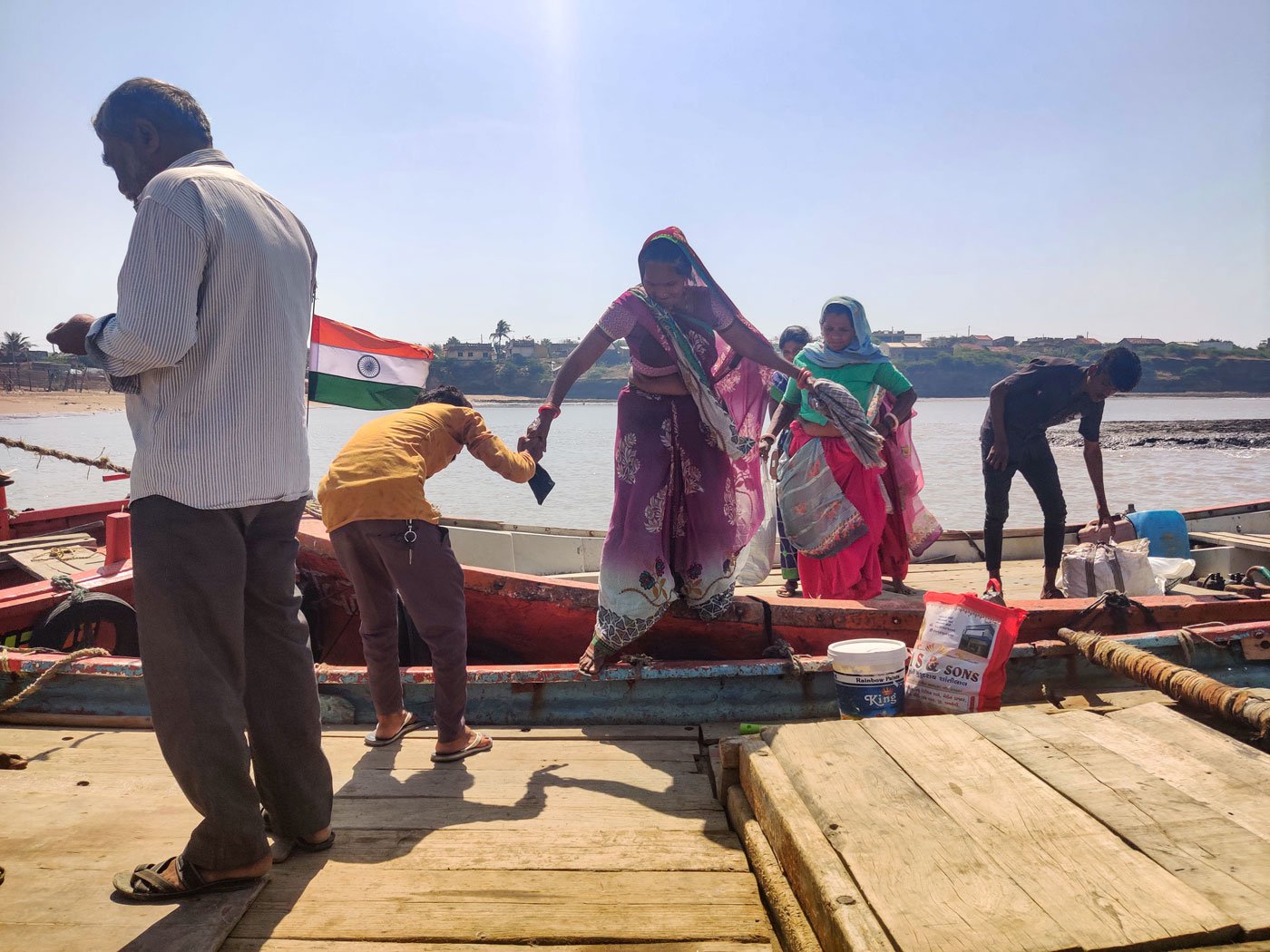
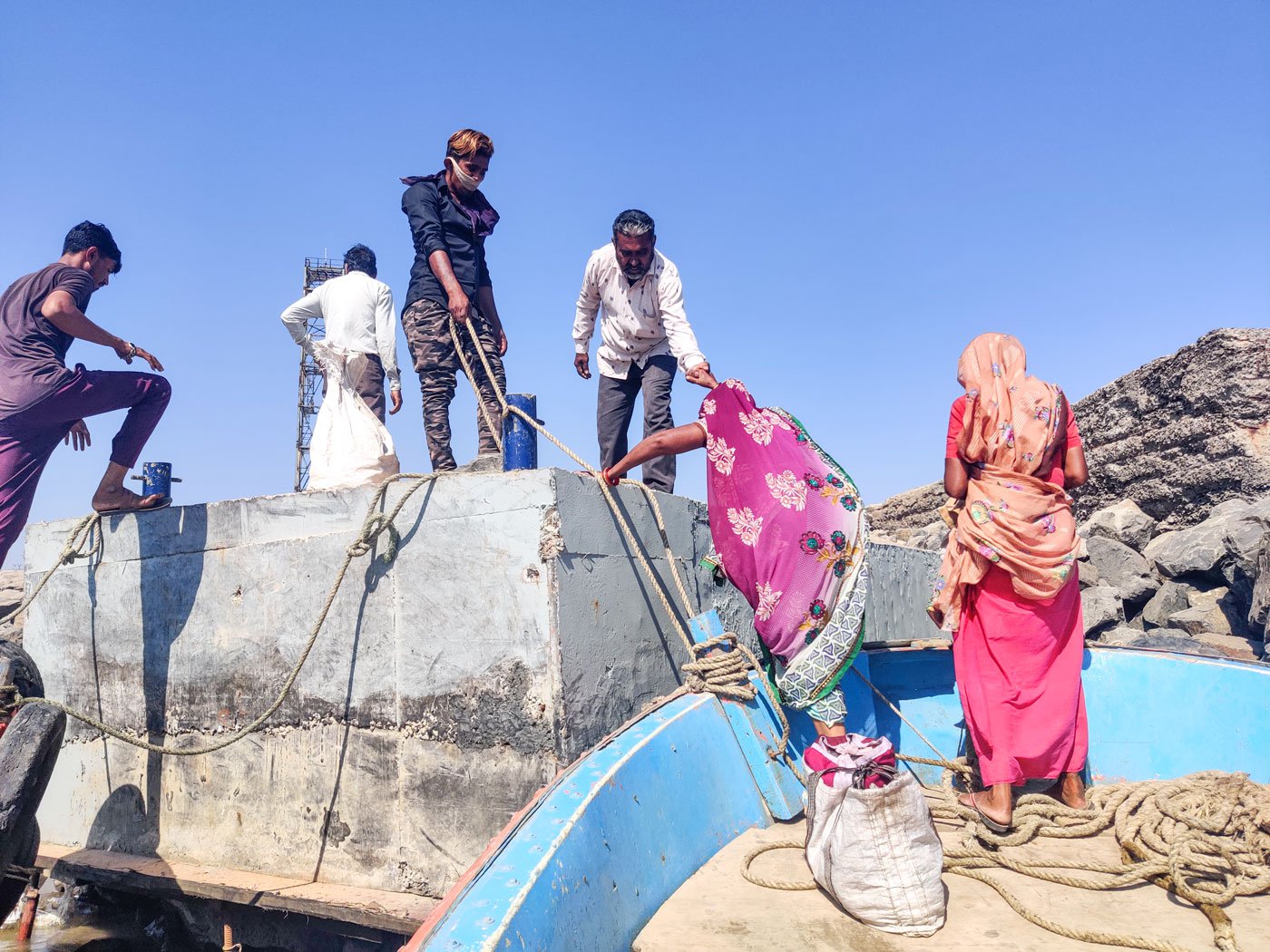
Passengers alighting at Shiyal Bet (left) and Jafrabad ports (right)
The experience has scarred Hansaben. “I fear I won’t get to the hospital on time for my delivery,” she says. “I fear I will fall off the boat when I am in labour. I know women from my village who have died because they didn’t get to the hospital on time. I know of cases where the baby has not survived as well.”
Arvindbhai, the lawyer-activist involved with the petition, says the absence of healthcare is one of the main reasons for the growing migration from Shiyal Bet in recent years. “You will find families who have sold everything they owned,” he says. “Most of these families have experienced a tragedy due to the absence of healthcare. They have moved to the coast and vowed to never return.”
Gabhiben, who lives on the coast, has made a vow: the next generation of her family will move out of their ancestral profession. After Jeevanbhai’s death, she works as a labourer drying fish for different fisherfolk. It is hard work and pays only Rs. 200 a day. Every rupee she earns is for the further education of her 14-year-old son, Rohit, who studies in a public school in Jafrabad. She wants him to grow up to be whatever he wants – except a fisherman.
Even if it means Rohit has to move out of Jafrabad, leaving Gabhiben alone in her old age. There are enough people in Jafrabad living with their worst fears. Gabhiben is done being one of them.
Parth M.N. reports on public health and civil liberties through an independent journalism grant from the Thakur Family Foundation. The Thakur Family Foundation has not exercised any editorial control over the contents of this reportage.